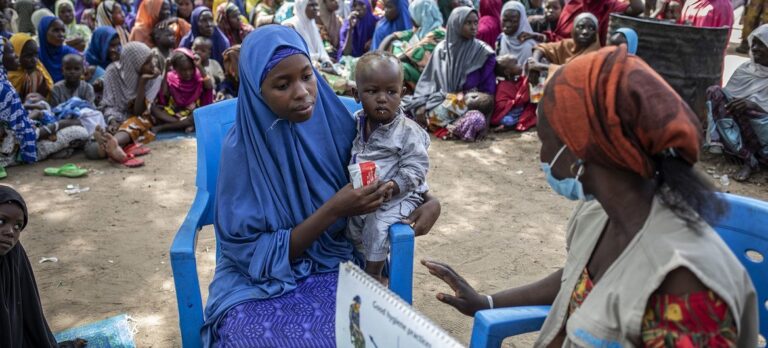At least 500,000 people have been displaced by gunmen in the incessant attacks on Benue State, North-central Nigeria.
According to a report by Amnesty International Nigeria, many of the displaced persons are languishing in squalid camps without access to sufficient water, poor sanitation, food and healthcare.
Benue State has in the last few years faced bandit attacks and clashes between herders and farmers. In 2020, Amnesty International Nigeria investigated the authorities’ failure to protect rural communities from attacks, and in 2025, it investigated the mounting death toll and looming humanitarian crisis amid unchecked attacks by armed groups.
Recently, DevReporting reported how gunmen who raided Yelewata town killed more than 100 people and forced over 3,941 more to flee their homes.
“The smell of decomposing bodies hung in the air during a visit to the affected community by Amnesty International in the aftermath of the attacks. Signs of the recent violence were unmistakable with bullet shells littering the ground, and mass graves that had been newly dug to bury the dead,” Isa Sanusi, Director Amnesty International Nigeria, said in a statement on Thursday.
READ ALSO: ANALYSIS: The state, insecurity, and betrayal of Benue, Plateau communities
Children at risk
The human rights organisation said as of 31 December 2024, an estimated 500,182 people had fled to IDPs camps in Benue to escape years of attacks by gunmen.
“More than 10,000 additional people have been displaced since the start of 2025 following attacks on communities in Gwer West, Agatu, Ukum (Gbagir), Kwande (Anwase), Logo, and Guma (Yelewata, Agan, and Gbajimba), among others.
“Access to healthcare is also a major challenge in the IDP camps with a lack of treatment for the most common diseases and ailments, such as malaria, typhoid, and stomach ulcers. According to a camp official, births occur almost daily in the IDP camps, with many pregnant women requiring medical attention but also contracting infections because of inadequate hygiene facilities.”
Similarly, many children are unable to exercise their right to an education in the camps.
“Our children no longer go to school and there are no arrangements by the authorities to teach children in the IDP camp. The government should bring an end to insecurity in our local government area and Benue state. Before that, provide us with food and proper shelter at the IDP camps,” Amnesty International quoted a source in a statement shared with journalists.
It added that there are hundreds of minors who fled their homes due to attacks and now live without parental care. The children were separated from their families while fleeing attacks on their villages and communities.
“The authorities have been unable to provide these vulnerable children with a safe place to live and essential services.”
Authorities inaction
Mr Sanusi added that the Nigerian authorities have failed the people of Benue as rampant attacks by gunmen have deprived thousands of people of their rights to life, physical integrity, liberty, freedom of movement and access to livelihoods.
“Survivors of these harrowing attacks face the fresh torment of being displaced in overcrowded, unhygienic camps where disease runs rampant and essentials such as food and clean water are scarce,” his statement partly read.
READ ALSO: Nourishing Hope: EU boosts Northern Nigeria’s fight against malnutrition with €500,000
“Nigeria is a state party to a number of treaties that guarantee the human rights of everybody in the country regardless of the circumstances. This includes the UN International Covenant on Economic, Social and Cultural Rights and the African Charter on Human and Peoples’ Rights which requires Nigerian authorities to ensure equal access to amongst others the rights to housing, health, food, water, sanitation and education.
“We call on the Nigerian authorities to take immediate steps to provide sufficient and accessible humanitarian support to the survivors of these attacks. Authorities must take steps to domesticate and effectively implement the African Union Convention for the Protection and Assistance of Internally Displaced Persons within the country’s legal system.
“The authorities’ persistent failure to hold suspected perpetrators to account is fueling a cycle of impunity that is making everyone feel unsafe. Authorities must now end the growing culture of impunity for these attacks,” the statement added.

